Could one simple juice help fight anemia, improve vision, and support liver cleansing all at once? According to nutrition research, the answer might be yes—if you combine beets, apples, and carrots into your daily routine.
Beets are rich in iron and nitrates, apples bring antioxidants and fiber, and carrots provide beta-carotene for eye health. Together, they form a vibrant, ruby-colored drink that has been called “the miracle juice” in various wellness circles. In fact, surveys suggest that nearly 45% of people worldwide use natural juices as part of their health maintenance routine, and this blend is among the most popular.
This article will explore why beet-apple-carrot juice is celebrated as a natural remedy. You’ll learn how each ingredient works, what science says, how to prepare it, and how to use it safely. By the end, you’ll have practical tips to make this juice part of your own wellness journey.
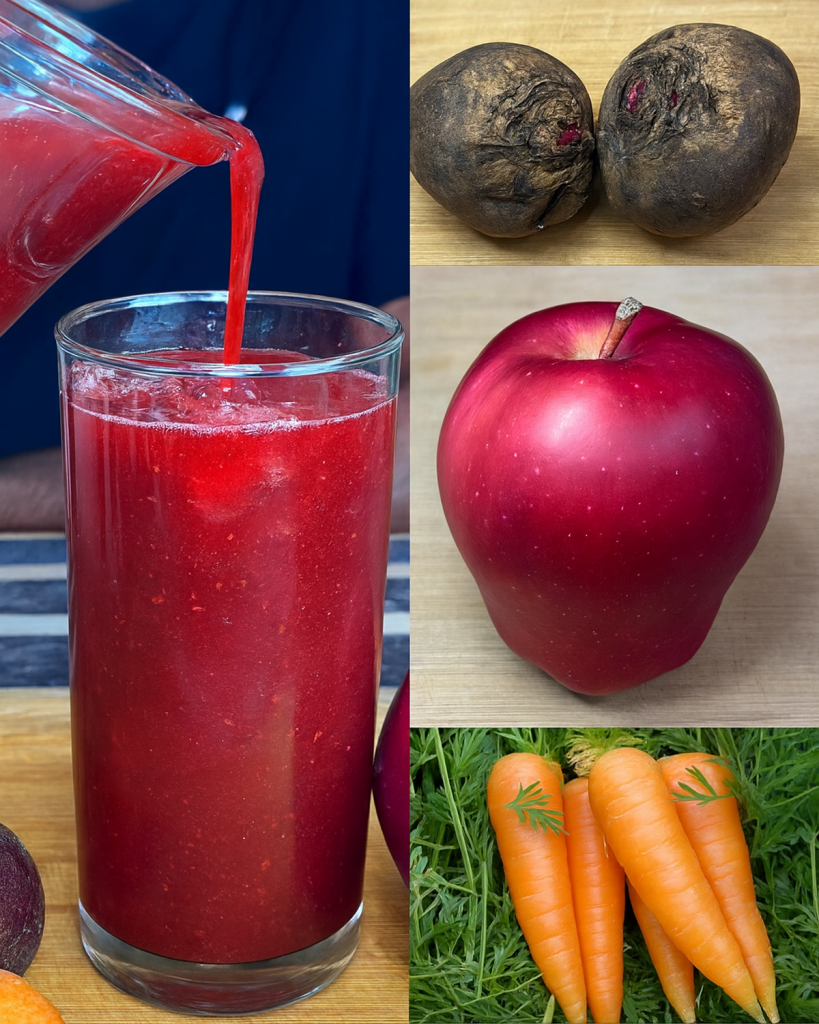
Why This Juice Is Called a “Natural Remedy”
Beets
- High in iron, which may support red blood cell production.
- Rich in nitrates, which improve circulation.
- Contains betalains, known for antioxidant and liver-protective effects.
Apples
- Packed with quercetin, a plant compound that protects cells.
- High in soluble fiber (pectin), which aids digestion and balances cholesterol.
- Natural sweetness balances the earthy flavor of beets.
Carrots
- Rich in beta-carotene, converted to vitamin A for vision support.
- Provides antioxidants that help protect against oxidative stress.
- Contributes to skin and immune health.
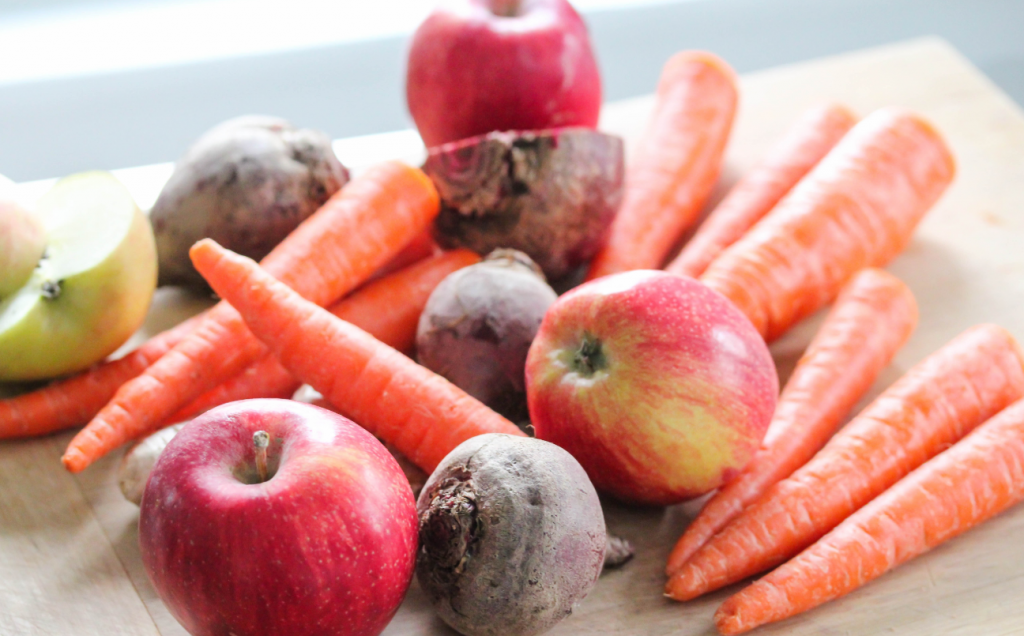
| Ingredient | Key Nutrients | Main Benefit |
|---|---|---|
| Beet | Iron, nitrates, betalains | Supports blood, circulation, liver |
| Apple | Fiber, quercetin, vitamin C | Digestive & antioxidant support |
| Carrot | Beta-carotene, vitamin A | Vision & immune protection |
When combined, these three ingredients create a nutrient synergy that makes the juice greater than the sum of its parts.
How This Juice May Support Anemia
Anemia occurs when your body lacks enough red blood cells or hemoglobin. Iron-rich foods like beets, along with vitamin C from apples (which enhances iron absorption), can play a supportive role.
Practical Example
- Drinking a glass of beet-apple-carrot juice a few times per week may help improve iron intake.
- Always pair with a balanced diet including legumes, leafy greens, and lean proteins.
Note: Severe anemia requires medical treatment; this juice is complementary, not curative.
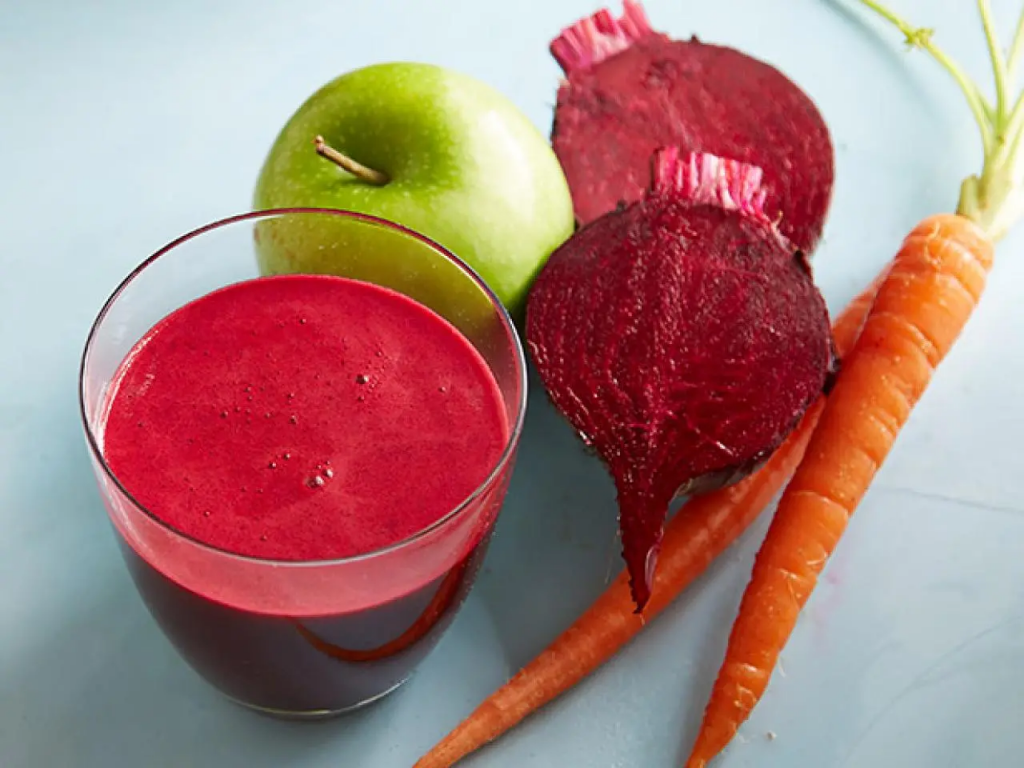
Vision Benefits from Carrots and Beets
Carrots are famous for their role in eye health, thanks to beta-carotene and vitamin A. Beets add lutein and zeaxanthin, antioxidants that may help protect the retina from light-induced damage.
Lifestyle Tip
Combine juice with other eye-friendly foods like leafy greens and fish rich in omega-3s for maximum benefit.
Liver Support Through Detoxifying Compounds
Beets contain betalains, which have been studied for their role in liver protection. They may support the liver’s natural detoxification pathways by aiding enzyme activity. Apples add pectin, which binds to toxins in the digestive tract, while carrots supply antioxidants to ease liver stress.
Case Story: Carlos, a 45-year-old engineer, began drinking beet-apple-carrot juice three times a week after his doctor advised him to improve his liver health. While his medical treatment continued, he noticed increased energy and better digestion, making the juice a valuable complement to his lifestyle.
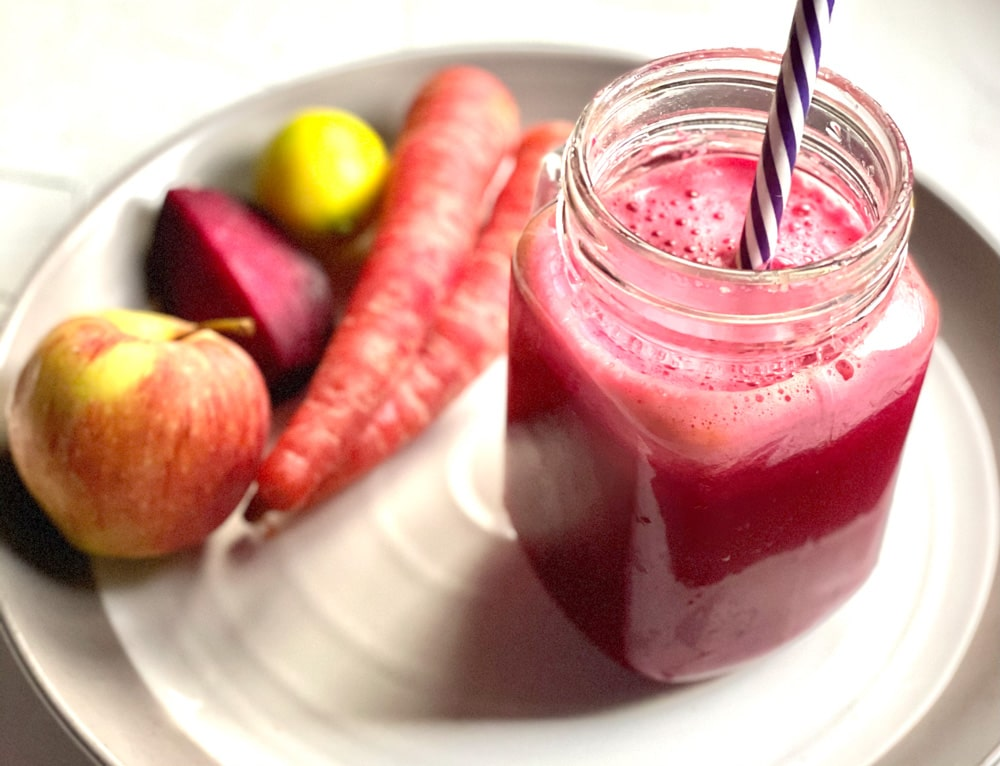
How to Prepare Beet-Apple-Carrot Juice
Ingredients
- 1 medium beet (peeled and chopped)
- 2 medium carrots (washed and chopped)
- 1 medium apple (cored, leave peel on if organic)
- ½ cup water (optional)
- ½ lemon (optional, for freshness)
Instructions
- Wash and chop all ingredients.
- Blend or juice until smooth.
- Strain if desired, or enjoy with pulp for extra fiber.
- Serve chilled.
Serving Size
- 1 glass (200–250 ml), 3–4 times per week is sufficient.
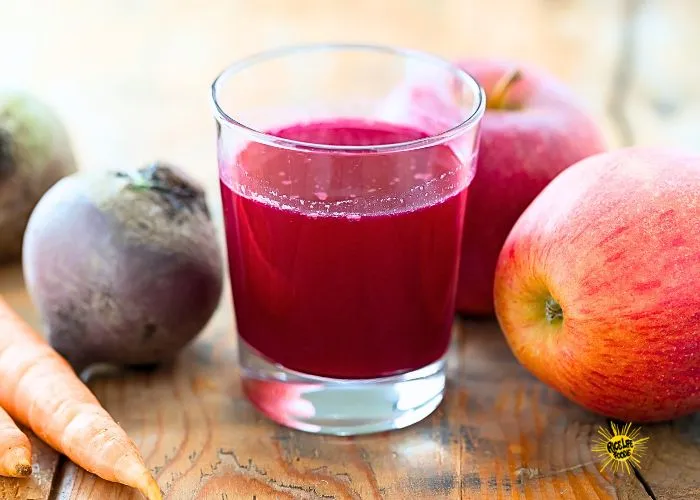
Safety and Precautions
- Kidney stones: Beets are high in oxalates, which may contribute to kidney stones in sensitive people.
- Diabetes: Apples and carrots contain natural sugars; monitor portion sizes.
- Medication interactions: If you are on blood pressure or blood-thinning medication, consult your doctor.
Lifestyle Tips to Enhance Results
- Eat balanced meals: Pair juice with whole grains and proteins.
- Stay hydrated: Juice is not a replacement for water.
- Exercise regularly: Improves circulation and oxygen delivery.
- Sleep well: Essential for red blood cell production and eye repair.
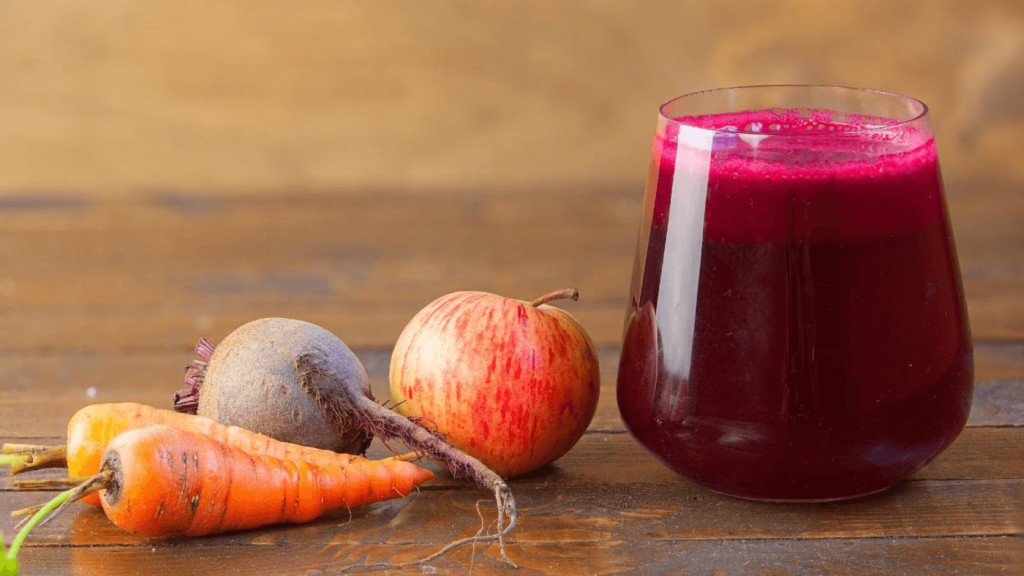
Myths vs. Facts
- Myth: This juice cures anemia completely.
Fact: It may support iron levels but cannot replace medical treatment. - Myth: Drinking daily is risk-free.
Fact: Overconsumption can increase oxalate risk or sugar intake. - Myth: Any beet juice is safe for children.
Fact: Children should consume smaller amounts, and always under supervision.
Conclusion
Can beet-apple-carrot juice cure anemia?
Not on its own, but it may support iron levels and red blood cell production when part of a healthy diet.
Does it restore vision?
Carrots and beets provide antioxidants that support eye health, but they cannot reverse existing eye diseases.
Is it good for the liver?
Yes, betalains and fiber may support liver cleansing, but only as part of an overall healthy lifestyle.
How often should I drink it?
Three to four times per week is sufficient for most adults.
This article is for informational purposes only and does not replace professional medical advice, diagnosis, or treatment. Always consult a healthcare provider before making significant dietary changes or relying on natural remedies for medical conditions.




